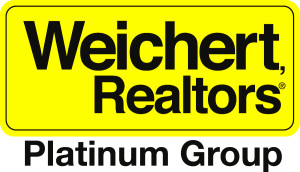Grand Rapids Home Buyer Tips
Buying a home can be one of your most significant investments in life. Not only are you choosing your dwelling place, and the place in which you will bring up your family, you are most likely investing a large portion of your assets into this venture. The more prepared you are at the outset, the less overwhelming and chaotic the buying process will be. The goal of this page is to provide you with detailed information to assist you in making an intelligent and informed decision. Remember, if you have any questions about the process, I’m only a phone call or email away!
Tip #1: Benefits of Owning Your Own Home
The Best Investment
As a fairly general rule, homes appreciate about five percent a year. Some years will be more, some less. The figure will vary from neighborhood to neighborhood, and region to region.
Five percent may not seem like that much at first. Stocks (at times) appreciate much more, and you could earn over six percent with the safest investment of all, treasury bonds.
But take a second look…
Presumably, if you bought a $200,000 house, you did not pay cash for the home. You got a mortgage, too. Suppose you put as much as twenty percent down – that would be an investment of $40,000.
At an appreciation rate of 5% annually, a $200,000 home would increase in value $10,000 during the first year. That means you earned $10,000 with an investment of $40,000. Your annual “return on investment” would be a whopping twenty-five percent.
Of course, you are making mortgage payments and paying property taxes, along with a couple of other costs. However, since the interest on your mortgage and your property taxes are both tax deductible, the government is essentially subsidizing your home purchase.
Your rate of return when buying a home is higher than most any other investment you could make.
If you are moving to a home for the first time, you are going to be very pleased with all the new space you have available. You may have to even buy more “stuff.”
Income Tax Savings
Because of income tax deductions, the government is basically subsidizing your purchase of a home. All of the interest and property taxes you pay in a given year can be deducted from your gross income to reduce your taxable income.
For example, assume your initial loan balance is $150,000 with an interest rate of eight percent. During the first year you would pay $9969.27 in interest. If your first payment is January 1st, your taxable income would be almost $10,000 less – due to the IRS interest rate deduction.
Property taxes are deductible, too. Whatever property taxes you pay in a given year may also be deducted from your gross income, lowering your tax obligation.
Stable Monthly Housing Costs
When you rent a place to live, you can certainly expect your rent to increase each year – or even more often. If you get a fixed rate mortgage when you buy a home, you have the same monthly payment amount for thirty years. Even if you get an adjustable rate mortgage, your payment will stay within a certain range for the entire life of the mortgage – and interest rates aren’t as volatile now as they were in the late seventies and early eighties.
Imagine how much rent might be ten, fifteen, or even thirty years from now? Which makes more sense?
Forced Savings
Some people are just lousy at saving money, and a house is an automatic savings account. You accumulate savings in two ways. Every month, a portion of your payment goes toward the principal. Admittedly, in the early years of the mortgage, this is not much. Over time, however, it accelerates.
Second, your home appreciates. Average appreciation on a home is approximately five percent, though it will vary from year to year, and in some years may even depreciate.. Over time, history has shown that owning a home is one of the very best financial investments.
Forced Savings
Some people are just lousy at saving money, and a house is an automatic savings account. You accumulate savings in two ways. Every month, a portion of your payment goes toward the principal. Admittedly, in the early years of the mortgage, this is not much. Over time, however, it accelerates.
Second, your home appreciates. Average appreciation on a home is approximately five percent, though it will vary from year to year, and in some years may even depreciate.. Over time, history has shown that owning a home is one of the very best financial investments.
More Space
Both indoors and outdoors, you will probably have more space if you own your own home. Even moving to a condominium from an apartment, you are likely to find you have much more room available – your own laundry and storage area, and bigger rooms. Apartment complexes are more interested in creating the maximum number of income-producing units than they are in creating space for each of the tenants.
If you are moving to a home for the first time, you are going to be very pleased with all the new space you have available. You may have to even buy more “stuff.”
More Home Buyer Tips
Tip #1: Benefits of Owning Your Own Home
- The Best Investment
- Income Tax Savings
- Stable Monthly Housing Costs
- Forced Savings
- Freedom and Individuality
- More Space
Tip #2: Important Things To Avoid Before Buying a Home
- Don’t Move Money Around
- The Effect of Changing Jobs
- No Major Purchases of Any Kind
Tip #3: Don’t Buy a Car – or Did You Already Buy One?
- When Income Grows and You Want to Buy “Stuff”
- Debt-to-Income Ratios and Car Payments
- How Buying a Car Reduces Your Purchase Price
Tip #4: The Business Cycle and Buying a Home
- Recession and Expansion
- Supply and Demand
- Should You Try to “Time the Market”?
Tip #5: Comparable Sales and Your Offer Price
- Determining Your Offer Price
- Comparable Sales in the Public Record
- Comparable Sales in the Multiple Listing Service
- Comparable Sales – Pending Transactions
- Other Factors Influencing Your Offer Price
Tip #6: Major Factors Influencing your Offer Price
- How Property Condition Affects Your Offer
- How Home Improvements Affect Your Offer
- How Market Conditions Affect Your Offer
- How Seller Motivation Affects Your Offer
- The Final Decision on Your Offer Price
Tip #7: Offering to Purchase Real Estate- the Basics
- Introduction and Overview
- Contingencies in a Purchase Offer
- Earnest Money Deposit
- The Closing Date
- Transfer of Possession
Tip #8: Writing an Offer – Safeguards Regarding the Property
- Disclosures From the Seller
- Condition of the Property Upon Transfer
- Inspections You Should Require
- Final Walk-Through Inspection
Tip #9: How Financing Details Affect Your Offer
- Down Payment
- Interest Rates
- Closing Costs and Financing Incentives
- Seller Financing
- Cash Offers
- Other Financing Details in Your Offer
Tip #10: How FHA and VA Financing Affects Your Offer
- Extra Costs for the Seller
- VA and FHA Appraisals
Tip #11: Selecting Service Providers
- You and the Seller Must Agree
- Escrow and Settlement
- Title Insurance
- Termite and Pest Inspection




